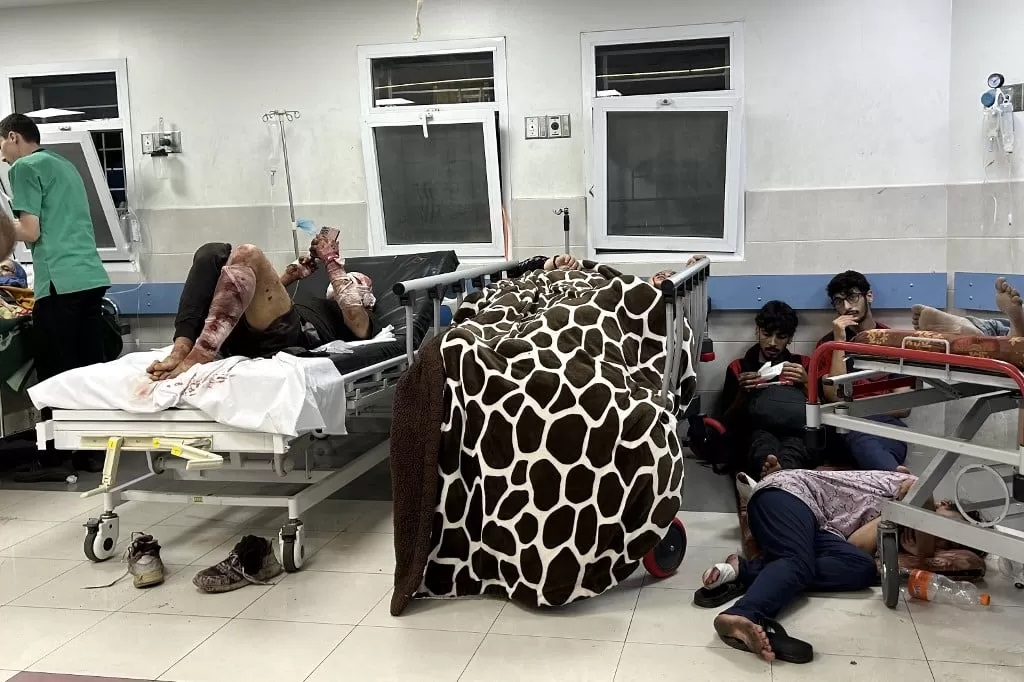Watan-Doctors who were forced to flee Al-Shifa Hospital in northern Gaza have recounted the terrifying details of their journey to the south of the strip, facing the brutality of the Israeli war.
Al-Shifa Complex, the largest medical facility in Gaza, has been under siege and Israeli bombardment since November 9th. This has compelled several doctors and civilians to evacuate the facility, which health officials declared “out of service.”
Among those who fled is Palestinian surgeon Haya Al-Sheikh Khalil, who hadn’t left the facility since the beginning of the Israeli war on Gaza over a month ago, until Friday, November 10th, when the military invasion of the building seemed imminent.
Speaking to “Middle East Eye,” she mentioned leaving the hospital with her siblings and several female doctors and displaced civilians after receiving an Israeli warning to evacuate.
She added that the occupying forces targeted the outpatient clinics and the women’s and maternity building with missiles and tank shells.
Despite the danger to their lives, a significant number of doctors refused to abandon the wounded, who couldn’t evacuate the hospital due to their critical conditions.
Haya stated, “I cannot comprehend the tragic atrocities committed by the Israeli occupation in Al-Shifa Hospital, a facility that shelters a very large number of wounded individuals and civilian doctors who have left their homes and families to provide care.”
She added that many patients at Al-Shifa have lost their entire families, leaving them without anyone to meet their needs. She further explained that the severity of their condition requires transportation by ambulances, but ambulances are scarce in the Gaza Strip, where many of them have been targeted and additional ambulances have been unable to reach the hospital.

